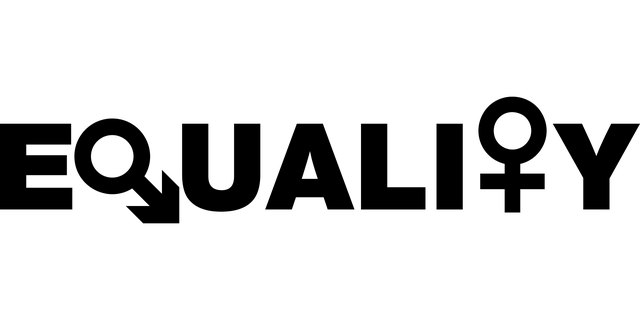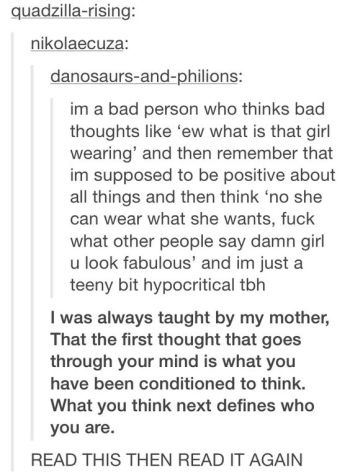Truth time.
I hesitate to say that I am not racist. In fact, if I ever say it, send me a message and tell me I’m wrong. I’ve grown up in a racist world and in a country that refuses to deal with its own very racist history (and present) in any sort of healthy way.
The mere phrase, “I’m not racist,” immediately makes me cringe. I’m preparing for the “but”. It’s almost always there. Here’s the thing, though: I’m pretty sure we’re all racist.

There is a lovely quote from Nelson Mandela:
“No one is born hating another person because of the color of his skin, or his background, or his religion. People must learn to hate, and if they can learn to hate, they can be taught to love, for love comes more naturally to the human heart than its opposite.”
I think Mandela was right, but we humans, we’re learners, and racism is in the water. Our children swallow racist ideas and tendencies by age three.
Three.
Society loaded me with an implicit racial bias, which I do my best to identify and repel. But, I know I’m racist, and so are you. As one student aptly pointed out in a recent episode of Code Switch, black people have been educated against themselves.
Similarly, I am a feminist and I know I am sexist.
It’s a difficult thing to admit, but I hear sexism in my head all the time. All. The. Time.
When I look in the mirror. When I see other women. When I meet other women. When people I like are accused of sexual assault. When I look at my daughter as we leave the house. When I look at my son. When I speak to either of my children.

And . . . when I watch White House press briefings.
The current administration gives me a variety of things to grieve and despise on a daily basis. There is enough to work against simply concentrating on policy initiatives and the caviler handling of representative democracy. There is no need to concentrate on the appearance of those within the administration to denounce their actions and work against them.
I get that people need to blow off steam. Political cartoons exist for a reason. Still, I do my best to ignore and scroll past comments and images disparaging how people look. Wigs and chin flaps and Cheetos and small hands and beady eyes and on and on and on. Perceived beauty and skin color certainly factor into the rise and fall of individuals, but I think any benefit that comes from either revering or making fun of someone’s appearance is ultimately outweighed by the detrimental effects.
Which is why it is so hard for me to watch White House briefings. There is a lot about Sarah Huckabee Sanders to dislike. She has become the mouthpiece of a destructive and disgusting administration. Like Sean Spicer before her, she lies, obfuscates, and offers flippant remarks to serious and solemn questions. But I watch her briefings far less than I ever watched Sean Spicer. Why?

As soon as she walks up to the podium, my implicit sexism roars inside my brain. I instantly criticize her apparel, makeup, voice, skin, and shape. The rare day that my bias has something nice to say is not better. I am judging her on appearance, which is something no one has much control over, is assessed by the ever-changing moods of society, and has almost nothing to do with the content of what is said.

Alongside the roars, I hear alarm bells. Other parts of my brain (or perhaps the same) telling me that I am being sexist. But, I can’t seem to shut the first voices out. It’s easier to get news from other mouths than to face the bias I cannot seem to overcome.
It’s said that admission is half the battle, so I’m putting this into the blogosphere and hoping that the written words will help me concentrate on character rather than characterization.
I know that I am racist. I know that I am sexist. And ableist. And homophobic. And transphobic. And xenophobic. And many, many others. It’s in the water. I know that confronting those truths has helped me be less biased, to drink less of the poison.
I came across this on Tumblr some time ago. It’s gotten rather popular.

I don’t know if that person’s mother is correct, but I think she is. The more aware I am, the less hypocritical first thoughts I have. Here’s to definition over conditioning.
How should I react to your transphobia? I was considering this discussing prejudice with my new friend whose racial origin is “Cape Coloured” though she grew up in England. My liberal response is to look inside myself, see something similar, and work together to make these things better. A class analysis says you are nonetheless part of the oppressor class and my sympathy is inappropriate.
I can’t tell you how to react, but I do respect any reaction you have to it. I think both your liberal and class responses are legitimate and noteworthy. People are complex. Our reactions and interactions are complex. It doesn’t have to be one or the other.
I’m pansexual, yet recognize internalized homophobia within myself. The more I face what society saddled me with, the less those thoughts and ideas rise to the surface and shade my understanding. However, I know too much about how our brains work to think I’ll ever be fully rid of them.
Oh and- the thought that “defines who you are” sounds like Slow Thinking, as opposed to the first Fast Thinking. Fast thinking is automatic. Slow thinking takes much more effort.
Are you referring to Daniel Kahneman’s book? It’s been on my to-read list for a while, but I haven’t gotten around to it. Are you willing to explain a bit more about what you mean?
In this case, I take the quote to mean that we (somewhat) create ourselves and create our own meaning and have at least some control over how we move through the world. I can see why defining one’s self would be seen as automatic, but I think the viewpoint actually does take some effort to see all sides.
I was referring to Kahneman, and unfortunately have not read the book, just a few articles and TV documentaries. And observed myself. I can overcome my programming, but it seems like hoicking something into my conscious mind and analysing it. The programming is who I am, the second thought is who I want to be. I hope I will never walk my talk, because then I would not be thinking and progressing.
We’re hardwired to take mental shortcuts. The lazier one is, the more those shortcuts will become ingrained.
Indeed. The effort take time but is well worth it, I think.
Would solve quite a few problems 🙂
Indeed.